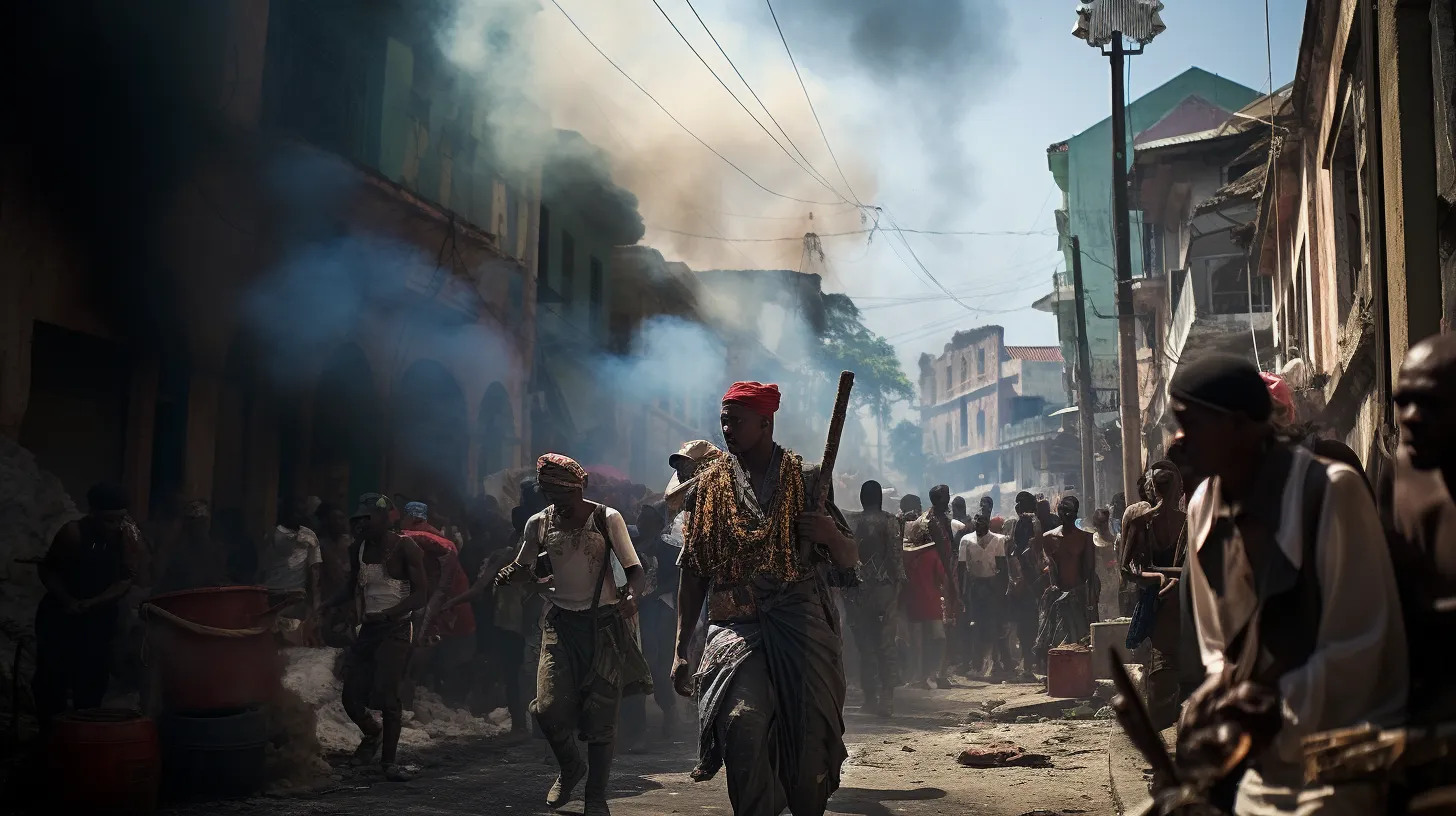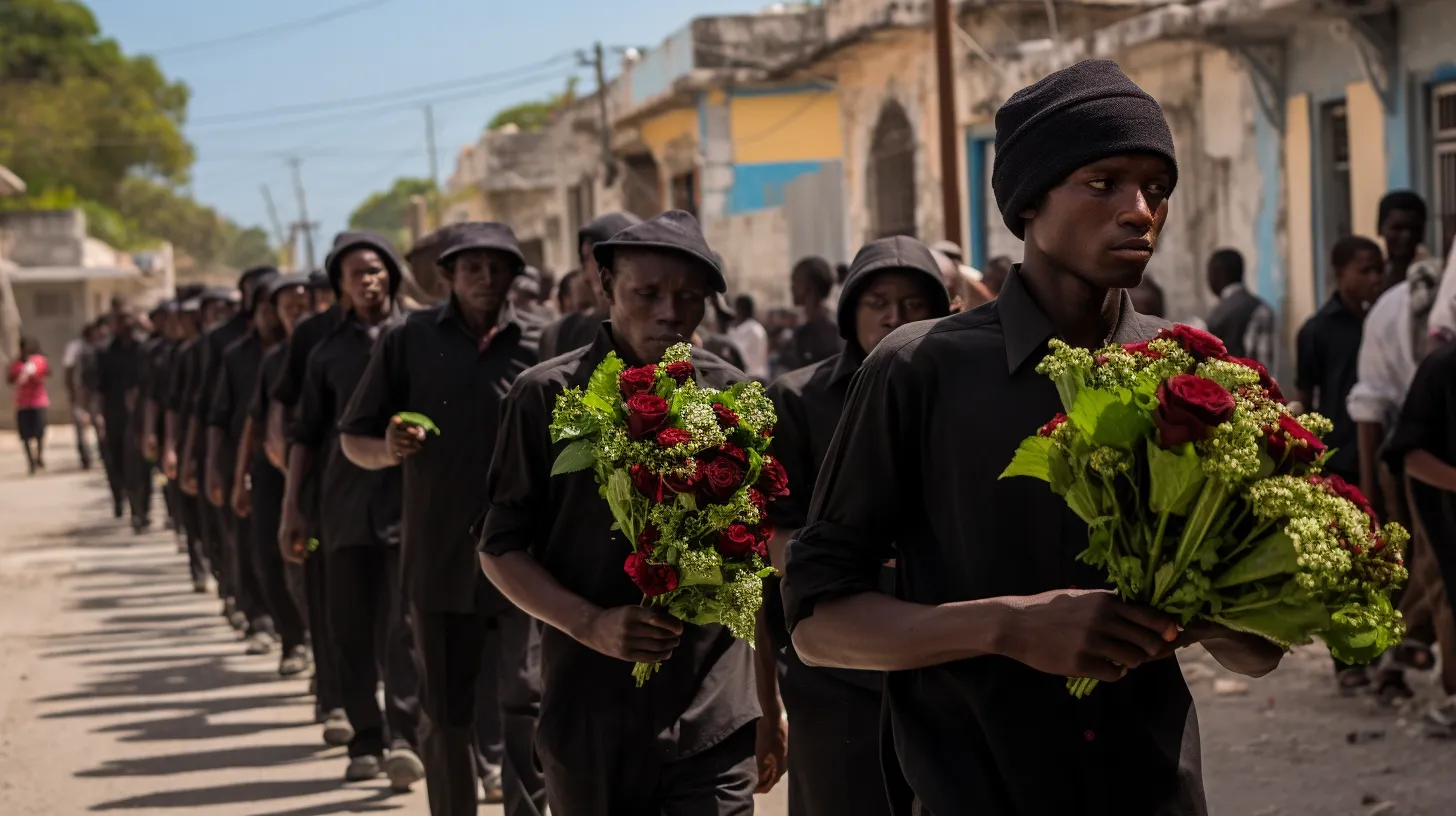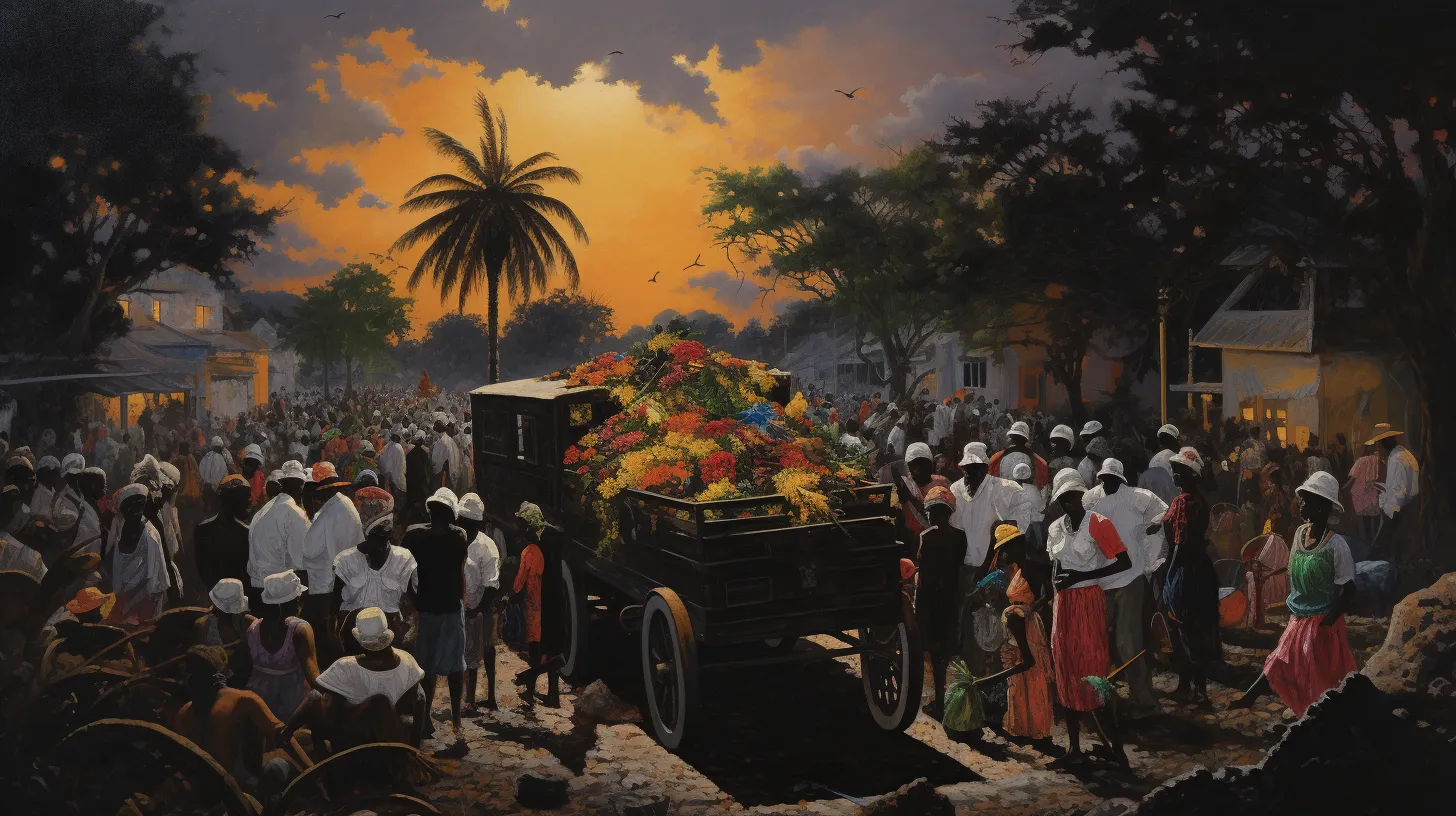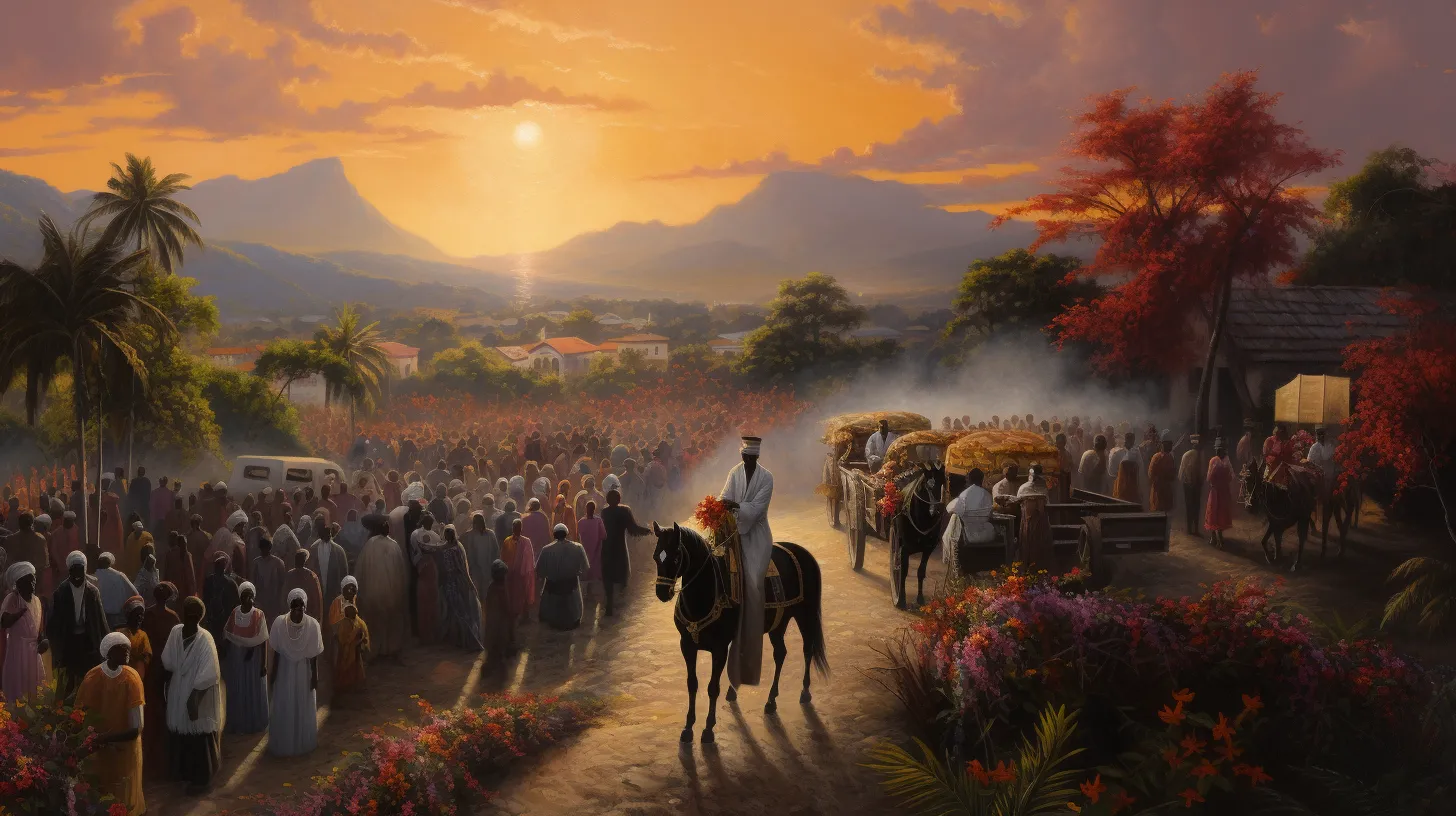Yes, Haitians indeed conduct funerals. Haitian funeral traditions are vibrant and serve as significant social gatherings.
Wakes are lively events filled with music, food, and drinks, creating a celebratory atmosphere. Funerals in Haiti are known for their elaborate coffins, ornate floral arrangements, and dramatic performances.
Despite economic challenges, funerals hold great significance in honoring and celebrating the life of the deceased. This reflects the cultural importance placed on paying respects to the departed.
Haitian Funeral Traditions

Haitians incorporate traditional practices, such as bathing the deceased and performing Voodoo rituals, into their funeral ceremonies. Funerals in Haiti aren’t just somber events but are often extravagant social gatherings that celebrate the life of the deceased.
The funeral procession is a significant part of the ceremony, with loved ones joining in to honor the departed. Ritual wailing and expressions of grief are common during Haitian funerals, reflecting the deep emotional connection to the deceased.
Voodoo rituals, often led by a priest or priestess, play a crucial role in releasing the soul and guiding it to the afterlife. Additionally, the use of a clay jar called a govi to call upon the soul for guidance showcases the unique and deeply rooted cultural practices that are a hallmark of Haitian funeral traditions.
Role of Voodoo in Funerals

How does Voodoo play a significant role in Haitian funeral traditions?
Voodoo holds a crucial place in Haiti’s death rites and funeral customs. The belief in the soul lingering on earth for a week after death is central to Voodoo practices. During this time, a priest or priestess conducts a ritual to release the soul and prevent it from becoming a bad omen.
The soul is called to a clay jar, known as a govi, for guidance and support in Voodoo ceremonies during funerals. Additionally, Voodoo’s significance varies in different regions, depending on the perceived importance of the deceased.
This influence is reflected in the flamboyant nature of Haitian funerals, which often include dramatic displays and fanfare bands. While some Haitians adhere to Voodoo practices, others may integrate elements of their Christian faith into funeral rituals, showcasing the diverse cultural and spiritual influences within the Haitian community.
Funeral Customs and Etiquette

Haitian funeral customs and etiquette are deeply rooted in a blend of religious, cultural, and social practices. The funeral service often begins with a wake, where family members and friends gather to mourn and celebrate the life of their loved one. Wakes in Haiti are lively events with music, food, and drinks, creating a festive atmosphere despite the somber occasion.
The following day, a funeral procession accompanies the deceased to the cemetery, where above-ground burial in mausoleums is common. At the cemetery gates, fanfare bands play a crucial role, providing musical accompaniment and creating an atmosphere of commemoration.
The elaborate social events and dramatic displays reflect the rich and multifaceted funeral customs and etiquette in Haiti. Voodoo rituals do play a part in these traditions, but they are not the sole focus. Other significant cultural influences shape these customs, making them a unique blend of religious, cultural, and social practices.
Mourning Practices in Haiti

The mourning practices in Haiti encompass a blend of cultural and religious traditions that shape the way the community honors and remembers their departed loved ones.
Voodoo rituals play a significant role in Haitian mourning practices, with the belief that the soul remains on earth for a week after death. During this time, a priestess performs a ritual to guide the soul to the afterlife.
Haitians often bathe the deceased to cleanse and prepare them for the journey. Additionally, the use of a clay jar to hold the deceased’s organs after organ donations is a common practice.
The mourning period typically lasts for seven to nine days, during which the community comes together to provide support and honor the memory of the departed.
Ancestry Day on January 2nd further commemorates and celebrates the lives of those who’ve passed.
The Spiritual Significance of Haitian Funerals

Haitian funeral traditions hold deep spiritual significance, intertwining Voodoo rituals with Catholicism and emphasizing the belief in the soul’s presence on earth after death.
Funerals in Haiti aren’t solely somber events but are also seen as social gatherings, often featuring dramatic displays of grief and celebration.
Voodoo, an essential aspect of Haitian culture, plays a significant role in the spiritual practices observed during funerals. The oldest family member typically leads the funeral rituals, which may include calling upon the soul to guide and support the living from a clay jar known as a govi.
The blending of Voodoo practices with Catholicism reflects the syncretic nature of Haitian culture and further emphasizes the spiritual significance of these rituals.
An important cultural observance, Ancestry Day, further highlights the spiritual significance of Haitian funerals by honoring the deceased, irrespective of their status or religious beliefs.



